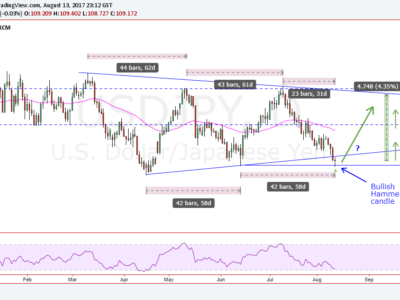5 Reasons Why 2016 Sucked for Traders
It is often said that uncertainty may be the bane of the financial markets. As most traders have no doubt noticed, 2016 was full of uncertainty.
Below we look at five reasons why 2016 was a difficult year for traders. While the market appears to have bounced back in November, the outlook is about as clear as mud.
Brexit
Regardless of which side of the Brexit debate you’re on, the June 23 referendum was a terrible ordeal for traders. Ignoring the uncertainty that rippled through the markets leading up to the vote, the shocking aftermath led to the biggest selloff in global stocks ever. A staggering $3 trillion in paper losses were recorded in just two sessions after Britain decided to quit the European Union.[1] That’s enough to leave a bad taste in your mouth for the rest of the year.
OPEC: Will They, Won’t They
If you thought the oil-price collapse was ending anytime soon, think again. The Organization of the Petroleum Exporting Countries (OPEC) has successfully talked up oil prices on several occasions this year by promising to consider lowering production. And nearly every time, the talks fizzled with nothing to show for them. OPEC’s colossal failure in boosting market confidence reflects its loss of power since the US shale oil boom got started back in 2005. OPEC may be poised to lower output beginning in January, but analysts note that won’t have much of an impact on long-term market stability. Traders may expect oil prices to remain lower for longer.
Donald Trump Election
Donald Trump shocked the world on November 8 by winning the US presidency. The immediate reaction was extremely positive, with US stocks soaring to fresh all-time highs. Global equities quickly followed suit, with Japan’s Nikkei reaching the highest level of the year. Apparently, investors are hopeful that Trump’s policies may boost economic growth and corporate profitability. While this may indeed occur, the impact of Trump’s policies might not be felt anytime soon, a sign that recent valuations in US equities are overstretched. Additionally, Federal Reserve Chairwoman Janet Yellen has warned that the President-elect’s plan may stoke inflation and national debt.[2] These factors may force the US central bank to raise interest rates at a faster pace than previously expected. As we’ve come to learn, the market might be highly sensitive to rate-hike bets.
Weak Growth
The health of the global economy remains suspect, and this no doubt weighed on traders’ sentiment in 2016. With the exception of India, emerging markets no longer appear to offer the same exciting growth opportunities they once did. Advanced markets are caught in a period of low growth, with central banks doing everything in their power to re-ignite consumption and inflation. The weak global outlook is expected to continue for the foreseeable future, which could translate into a low-yield environment for equities. According to the International Monetary Fund’s October outlook report, the world economy is on pace to grow just 3.1% this year, down from 3.2% in 2015. Growth is expected to pick up to 3.4% in 2017.[3]
Ineffective Monetary Policy
2016 was also the year that traders began to lose hope in monetary policy. Nowhere was this more apparent than in Japan. After spending trillions of yen to prop up the economy, the Bank of Japan (BOJ) abandoned quantitative easing in favour of rate targeting. BOJ policymakers conceded that inflation won’t reach its 2% target during fiscal 2017, a stark illustration of an economy struggling to regain momentum.[4] Elsewhere, monetary policy is overstretched and economies are underperforming. However, it is decidedly unclear that most major economies can cope without rock bottom interest rates. That paralyzing question has been weighed by the US Federal Reserve all year long.
It remains to be seen whether 2017 may offer more optimism for traders. One thing is clear: the five issues discussed above will continue well into the new year. By then, we may have more insights into Donald Trump’s proposed policies and OPEC’s ability to support the oil market. Otherwise, uncertainty is set to remain.
[1] Matthew J. Belvedere and Peter Schacknow (June 28, 2016). “After $3 trillion in post-brexit paper losses, global markets bunce.” CNBC.
[2] Paul Davidson (November 17, 2016). “Yellen: Trump plan may stoke inflation, debt.” USA Today.
[3] International Monetary Fund. World Economic Outlook: October 2016.
[4] Robin Harding (November 1, 2016). “Kuroda admits BoJ will not reach inflation target before term ends.” Financial Times.
The post 5 Reasons Why 2016 Sucked for Traders appeared first on Forex.Info.














